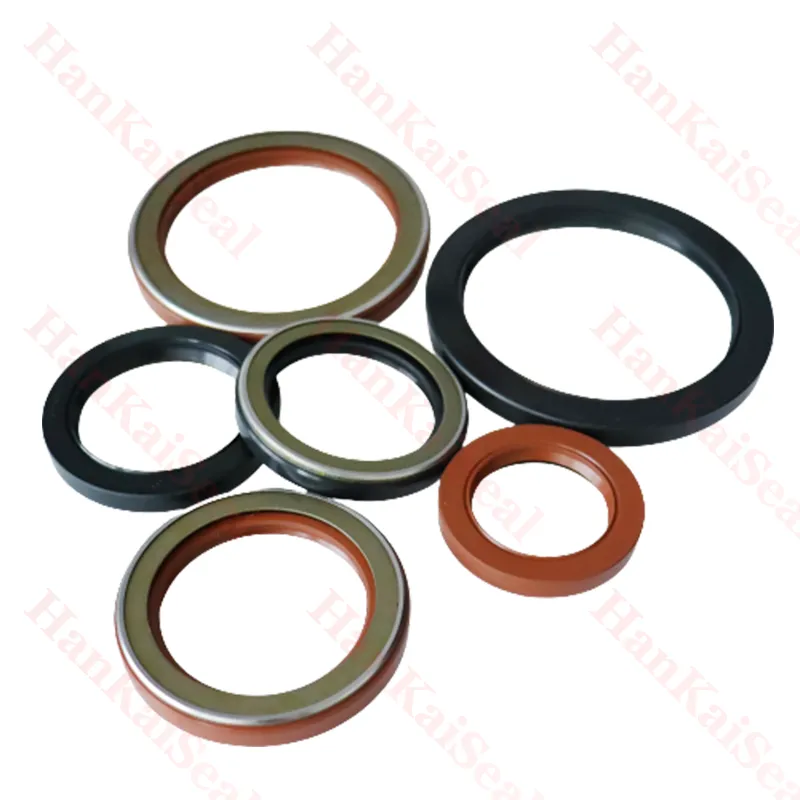Dis . 11, 2024 01:11 Back to list
Understanding the Function and Importance of Oil Seals in Mechanical Applications
The Purpose of Oil Seals
Oil seals, sometimes referred to as rotary shaft seals, are critical components used in a variety of machinery and vehicle systems. Their primary purpose is to retain lubricating oil within a mechanical assembly while simultaneously preventing the ingress of dirt, dust, and other contaminants. The effective functioning of oil seals is essential for the longevity and performance of equipment ranging from automotive engines to industrial machinery.
Understanding Oil Seals
Oil seals are typically made of elastomers like rubber or composite materials that provide flexibility and resilience. They are designed to fit snugly around shafts, allowing them to rotate while still maintaining a barrier against external elements. The design often includes a lip that presses against the shaft surface, which creates a dynamic sealing interface. This lip provides the necessary contact to contain fluids effectively, preventing leaks that could lead to mechanical failures or reduced performance.
Key Functions of Oil Seals
1. Fluid Retention The core function of an oil seal is to contain lubricating fluids within a system. Whether in engines, gearboxes, or hydraulic systems, maintaining the correct fluid level is crucial for optimal operation. If seals fail, it can lead to significant oil loss, resulting in inadequate lubrication, increased friction, and eventual wear and tear on components.
2. Contaminant Exclusion Oil seals also serve as a protective barrier that prevents contaminants, such as dust, dirt, and water, from entering the system. Contaminants can cause corrosion, wear on mechanical parts, and eventual failure of the system. A well-functioning oil seal can greatly extend the life of machinery by reducing the chances of internal contamination.
3. Pressure Maintenance In many instances, oil seals must withstand varying pressures within a system. They help maintain pressure differentials needed for certain operations, particularly in hydraulic systems. Without the proper sealing, pressure could drop, resulting in decreased efficiency and power loss.
what is the purpose of oil seal

4. Vibration and Noise Reduction Oil seals can also play a role in dampening vibrations and reducing noise produced by moving parts. By ensuring a tight seal, the chances of rattling or excessive movement that can lead to noise are minimized, contributing to a smoother operation.
Application of Oil Seals
Oil seals are used in numerous applications across different industries. In the automotive sector, they can be found in engines, transmission systems, and differentials. Industrial machines, such as pumps and motors, utilize oil seals to protect internal components and ensure reliable operation. Maritime vessels, aerospace applications, and agricultural equipment also depend on the reliability of oil seals to maintain performance under challenging conditions.
Choosing the Right Oil Seal
When selecting an oil seal, several factors must be considered, including the type of fluid being contained, the operating temperature, and the environment in which the seal will work. The material composition and design must align with these operational parameters to ensure longevity and effectiveness. It is also crucial to consider the shaft size and the seal's installation requirements to avoid issues such as misalignment.
Conclusion
In summary, oil seals perform several vital functions within mechanical systems, primarily focusing on fluid retention, contamination prevention, pressure maintenance, and noise reduction. Their importance cannot be overstated; without effective sealing, machinery would suffer from severe operational inefficiencies and potential failure. As technology advances, the design and materials used for oil seals will continue to evolve, supporting the increasing demands of your machinery while ensuring durability and reliability. For any machinery to function optimally, it's clear that a reliable oil seal is an essential component in achieving long-term performance and efficiency.
-
TCN Oil Seal Metal Ring Reinforcement for Heavy Machinery
NewsJul.25,2025
-
Rotary Lip Seal Spring-Loaded Design for High-Speed Applications
NewsJul.25,2025
-
Hydraulic Cylinder Seals Polyurethane Material for High-Impact Jobs
NewsJul.25,2025
-
High Pressure Oil Seal Polyurethane Coating Wear Resistance
NewsJul.25,2025
-
Dust Proof Seal Double Lip Design for Construction Equipment
NewsJul.25,2025
-
Hub Seal Polyurethane Wear Resistance in Agricultural Vehicles
NewsJul.25,2025
-
The Trans-formative Journey of Wheel Hub Oil Seals
NewsJun.06,2025
Products categories
















